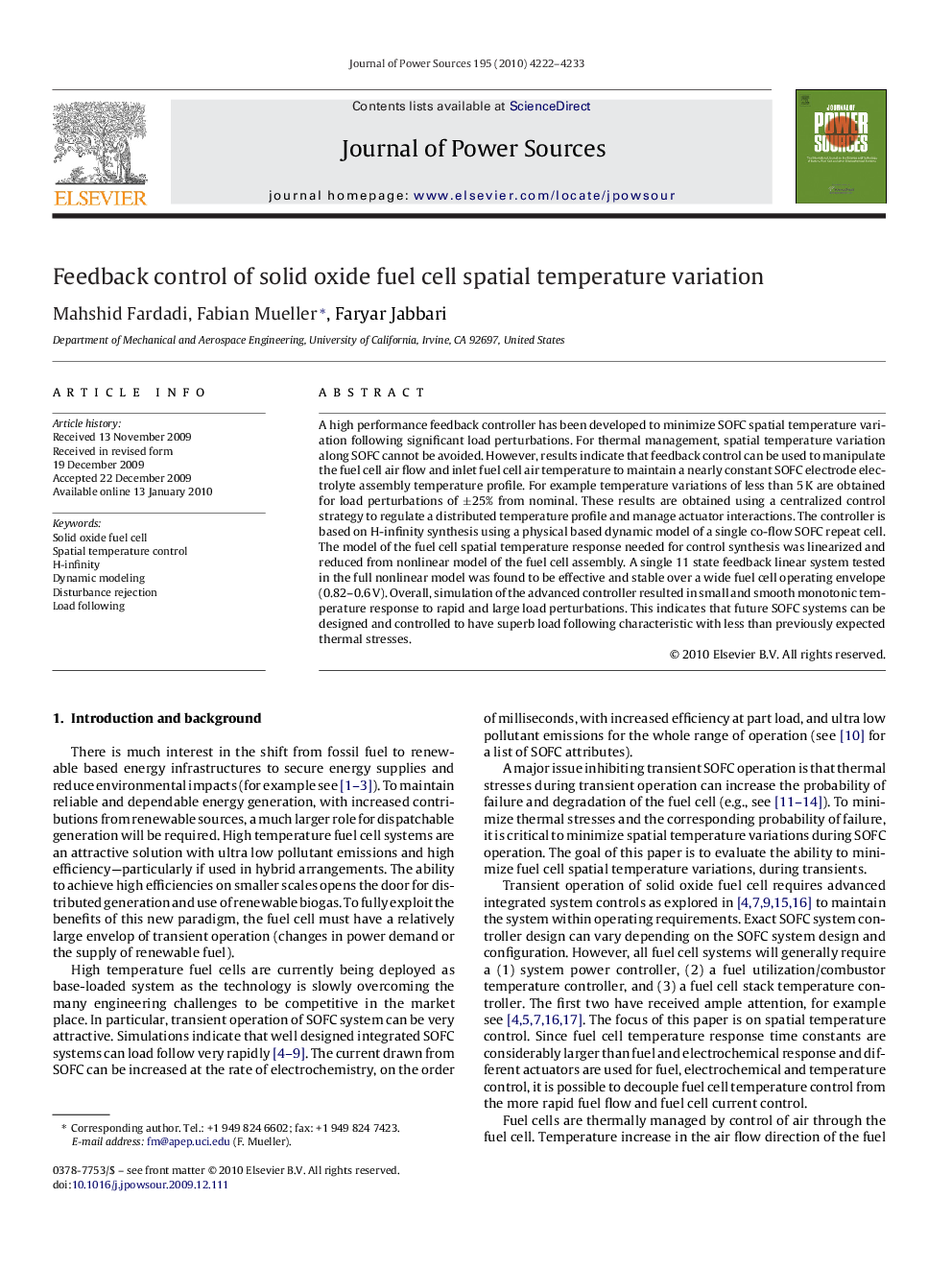| Article ID | Journal | Published Year | Pages | File Type |
|---|---|---|---|---|
| 1290351 | Journal of Power Sources | 2010 | 12 Pages |
A high performance feedback controller has been developed to minimize SOFC spatial temperature variation following significant load perturbations. For thermal management, spatial temperature variation along SOFC cannot be avoided. However, results indicate that feedback control can be used to manipulate the fuel cell air flow and inlet fuel cell air temperature to maintain a nearly constant SOFC electrode electrolyte assembly temperature profile. For example temperature variations of less than 5 K are obtained for load perturbations of ±25% from nominal. These results are obtained using a centralized control strategy to regulate a distributed temperature profile and manage actuator interactions. The controller is based on H-infinity synthesis using a physical based dynamic model of a single co-flow SOFC repeat cell. The model of the fuel cell spatial temperature response needed for control synthesis was linearized and reduced from nonlinear model of the fuel cell assembly. A single 11 state feedback linear system tested in the full nonlinear model was found to be effective and stable over a wide fuel cell operating envelope (0.82–0.6 V). Overall, simulation of the advanced controller resulted in small and smooth monotonic temperature response to rapid and large load perturbations. This indicates that future SOFC systems can be designed and controlled to have superb load following characteristic with less than previously expected thermal stresses.
